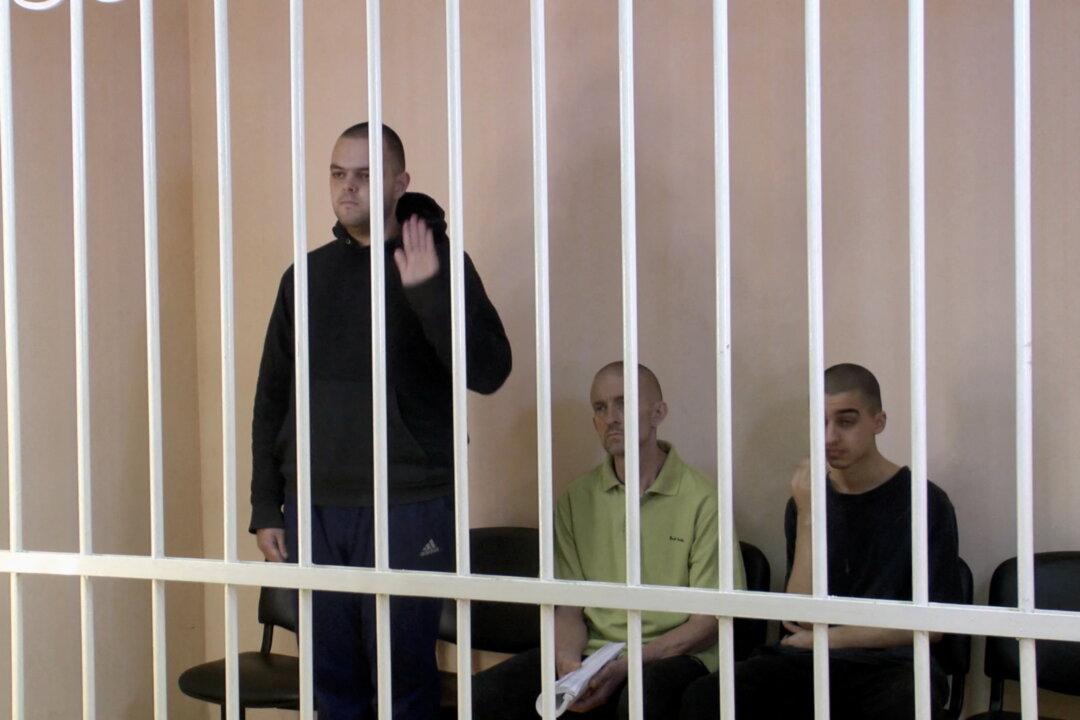Russia wants to use three foreigners who were captured while fighting for Ukraine and sentenced to death as “hostages” to put pressure on the West over peace negotiations, a senior Ukrainian official said on Friday.
Two Britons and a Moroccan received the death sentence on Thursday from a court in the self-proclaimed Donetsk People’s Republic (DPR), one of Russia’s proxies in eastern Ukraine, Russian news agencies reported.





